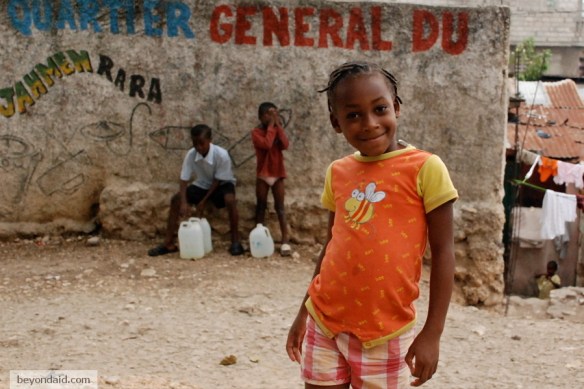In today’s latest news and analysis…
Normalizing drones
Reuters reports on the deterioration in US-Pakistan relations, with the most recent incident – chairman of the US Joint Chiefs of Staff Admiral Mike Mullen’s allegation that Pakistan’s intelligence agency is a “veritable arm” of the violent Haqqani network which operates inside Afghanistan – suggesting targeted assassinations have become less controversial than harsh words expressed publicly.
“Mahmud Durrani, a retired major general and former Pakistani ambassador to Washington, said both sides should ease tensions to avoid American military action beyond drone strikes or economic sanctions.”
Arming against democracy
Human Rights Watch has called on the US to hold off on selling $53 million in armoured vehicles and missiles to Bahrain in light of alleged abuses committed against “peaceful critics” of the regime.
“It will be hard for people to take US statements about democracy and human rights in the Middle East seriously when, rather than hold its ally Bahrain to account, it appears to reward repression with new weapons,” according to the group’s deputy Washington director, Maria McFarland.
Who you gonna believe?
In the aftermath of Oxfam allegations that a British company’s carbon offset project in Uganda had led to the forcible eviction of more than 20,000 people, the Wall Street Journal reports the New Forests Company said all relocations were “voluntary, legal and fully respected and in accord with all stringent protocols” and the World Bank said the project “had met its standards so far.”
“Matt Grainger, an Oxfam spokesman and co-author of the Uganda report, faults New Forests and its investors for not digging deeper into the project. In interviews with hundreds of former residents, he said, ‘we can’t find any evictee that doesn’t describe violence….We can’t find anybody who was compensated.’”
Diplomatic oil leak
The Courthouse News Service reports on Wikileaks cables describing efforts by Chevron to convince the Ecuadorean government to make a massive lawsuit over pollution in the Amazon rainforest go away despite the oil company’s public criticism of the country’s “politicized” courts.
“Chevron had begun to quietly explore with senior GOE officials whether it could implement a series of social projects in the concession area in exchange for GOE support for ending the case, but now that the expert has released a huge estimate for alleged damage, it might be hard for the GOE to go that route, even if it has the ability to bring the case to a close,” according to a note written by former US ambassador Linda Jewell April 7, 2008.
Putting the green in greenwash
A new Bottom Up Thinking post suggests that even if companies that donate funds to tropical conservation “are consciously attempting to atone for their ‘bad’ acts elsewhere that have harmed the cause of conservation,” pragmatic engagement may be the best approach.
“Wrapped up in all this is one of the big questions of CSR: compensatory philanthropy versus integration into core business practices. I think just about everyone agrees that it is better not to sin in the first place, than to make some later atonement, and thus conservation BINGOs need to be wary of cosying up to big polluting businesses who are fundamentally uninterested in changing their ways… But on the other side of the coin, we must be realistic: the modern world consumes an awful lot of resources (hydrocarbons, minerals, timber, food) whose production or extraction is inevitably messy. So, yes, we should constantly push polluters to improve their acts, but we should accept that some environmental damage is unavoidable, and welcome their attempts to atone for this elsewhere.”
With or without you
Embassy Magazine reports that British Prime Minister David Cameron, on a visit to Canada, suggested that an outcome of increased global trade liberalization was more important than a process of inclusive negotiation.
“And if we can’t get a deal involving everyone, then we need to look at other ways in which to drive forward with the trade liberalization the world needs, ensuring the continued work of the WTO preventing any collapse back to protectionism,” he told Parliament. “But going forwards, perhaps with a coalition of the willing where countries like Britain and Canada who want to, can forge ahead with more ambitious deals and others can join later if they choose.”
An end in itself
The Trade Justice Movement’s Ruth Bergan criticizes the G20’s development working group for prioritizing the interests of big business and seeing development as a means to increasing trade.
“While governments are allowed to continue doing business in the G20, we should expect little more than lip service to development and a shopping list of measures to benefit the vested interests of the private sector. The WTO may be in freefall, but we must be vigilant that the G20, which does not even pretend to be democratic or accountable, does not become a substitute.”
The trouble with accountability
The Institute of Development Studies’ Noshua Watson argues that because pressure from domestic voters can reduce the quality of foreign aid provided by governments in wealthy countries, official development assistance needs to be supplemented by other sources of non-state giving.
“The provision of global public goods is dependent on the willingness of the most fortunate to give to the less fortunate. Whether this aid actually contributes to development and wellbeing depends on how aligned donors’ intentions are with recipients’ needs. It also depends on recipients’ capacities to use that aid. Because they are not responsible to the voting public, philanthropies can more closely meet recipients’ needs and help them build capacity.”



